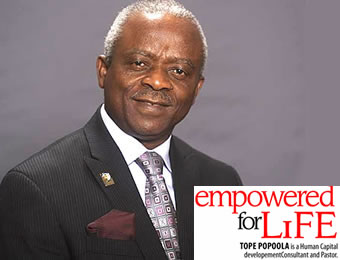Perhaps the most popular definition of leadership, as postulated by John Maxwell is that it is the ability to influence other people, positively or negatively. Stretching this further, leadership has been described as the ability to guide others as well as channel resources towards a defined collective goal. The leader therefore is ANYONE who, by position or disposition, is able to achieve this. The critical issues in leadership, if we go by these definitions, are that it involves others who need direction at one time or the other. We will define such times as critical, not necessarily dangerous, times. Second, it presupposes a clearly defined collective goal or destination if there is to be a buy-in and effective team engagement. It also implies that for this to happen effectively, leadership can be situational or dispositional. For as long as you are in apposition to help other people navigate their way out of a collective dilemma, you are already playing the role of leadership. In this context therefore, the leader in a given crisis situation is not the one with a chain of degrees in Organizational or Transformational Leadership or an MBA from an Ivy League university. It is not the richest or the most socially visible. The leader would be whoever steps up to the plate, embraces the responsibility of solving the problem by charting and leading the way forward in the journey towards a resolution of the collective logjam. Simply put, anyone who can take responsibility can lead. Have you ever found yourself in a position where you seemed to be the only one who had an answer to a particular group problem, whether in a small group like a family, circle of friends or a large group like a social club or corporate organization? The moment you assumed the responsibility for providing that solution and everyone in the group trusted your capacity to deliver, you became the leader at that moment! Have you ever been asked for direction to a particular place and you gave an accurate description that the one(s) who needed direction could trust to lead them to their destination? That was leadership. Have you ever taken the responsibility for taking up a cause that others ignored, like a community-related issue or a social concern, and rallied others round to believe in and subscribe to the cause? That was leadership in action. Leadership is therefore not about hugging the limelight or being in the news. It is about taking the initiative to serve others by solving problems when and where such arise and within your capacity to solve.
Imagine your first trip to a big city where you didn’t know anywhere and so could not possibly navigate your way around. All you had was the address of your destination. It was late at night and you had no clue where a good hotel was located even if you had to find somewhere to sleep before proceeding to your actual destination in the morning. All the people you asked for direction only worsened your dilemma by first telling you how far from where you were your destination was while they proceeded to give you tortuous descriptions comprising many “turn left, then turn right, go straight, get to a junction, then go left and go straight oooooooo, then ask somebody…” I remember one particular occasion in Lagos. Not knowing that I was only a few metres away from my destination, I asked someone for directions on how to get there. He gave me a description that took me totally off that street! After going round in circles for a while in punishing traffic, I asked another person. Following his direction, I ended up in the same street where I asked for direction only to discover that I was already so close to my destination before I was misled! am sure you are familiar with such bogus descriptions that actually take you nowhere! Then, fortuitously, you saw an ‘okada’ rider, stopped and asked if he could take you to your destination. You agree on a fee and he asks you to follow him. In blind trust and even at great risk, you do, because you recognize at that time that he was your only way out. Graciously, he takes you to your destination. At that moment, who provided leadership for you? No price for guessing right!
The failure of any organization you belong to is also your failure as long as there was something within your capacity, an information, a suggestion, an action or a solution that you could have brought to the table but refused to, simply because you thought that only the person at the top of the organization was to be held responsible for its failure. You cannot exculpate yourself from blame unless you can say that the suggestions or solutions you offered were rejected or never considered. There is a popular statement that says that everything rises and falls on leadership. True, but the statement does not implicate only the man at the top.
Corporate progress, national development are all products of several parts and levels of function leading to a collective outcome. If you will step up to the plate and fix at your own level of function, the things that others routinely ignore, complain about or have no competence to fix, you make the strongest case for your recognition and reward when the opportunity for centre-stage prominence arises. The legitimate platform for every man’s promotion is the problem he is uniquely gifted or enabled to solve for other people. Anyone can complain. Yet everyone can do something. A collective dilemma is the opportunity that life offers to us all to showcase our inner strength and purest talents.
Who gets to lead, good or bad? It’s the one who shows up, rolls up his sleeves, picks up the gauntlet and faces the task, especially when everyone else is either balking or backing out!
In the words of one of my protégés, Felix Duyilemi, “It’s IN you”!
Remember, the sky is not your limit, God is!







